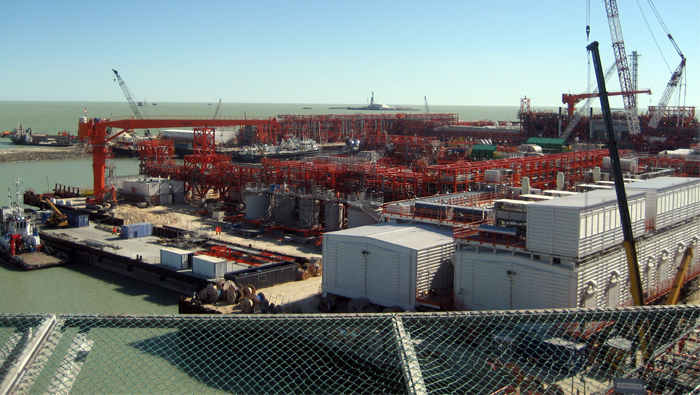
Almaty: Kashagan, a vast oil field in the Caspian Sea, sent its first crude for export after about 16 years in development and more than $50 billion of investments.
The venture loaded 26,500 metric tonnes of crude for export into the country’s pipelines, Kazakhstan’s energy ministry said in an e-mailed statement. Of that, 7,700 tonnes was sent to the Caspian Pipeline Consortium. Reaching stable production will take ‘some time’ as commissioning work continues both offshore and onshore, the ministry said.
The project has been plagued by multiple delays and cost overruns. A 2008 budget estimate of $38 billion jumped to $53 billion by the end of last year as the partners replaced undersea links after sour gas cracked the pipes. The crude from Kashagan is reaching an already saturated market, with prices at less than half the level of 2013 when the project hit a setback. Expectations for the field’s exports even prompted Organisation of Petroleum Exporting Countries (Opec) to flip supply predictions for next year.
"Restarting production even in this low oil price environment is good because it means beginning to see some returns on that massive investment,” Andrew Neff, Paris-based principal analyst at IHS Energy, said by e-mail. "The real payoff will be phase 2,” which has the potential to increase output to 1 million barrels a day, he said.
North Caspian Operating, which took over from Eni as operator of the field in 2009, said it’s working to gradually increase production capacity to a target level of 370,000 barrels a day by the end of 2017. UK consulting firm Wood Mackenzie forecasts only about 154,000 barrels a day from the field in 2017.
Pipe defects
Development of the offshore deposit, initially due to come on stream more than a decade ago, was prolonged by the need to build remote islands to support drilling equipment. Although production finally got going in September 2013, it was halted just weeks later because of the pipe defects.
The global oil glut has seen crude prices sink to half their 2014 levels. Non-Opec supply will grow by 240,000 barrels a day next year, the Opec said. A month earlier it predicted a 200,000-barrel gain, and a month before that, a decline.
The ownership of the discovery has shifted over the years. Kazakhstan raised its stake to 16.88 per cent; Eni, Total, Royal Dutch Shell and Exxon Mobil each own hold 16.81 per cent. China National Petroleum joined with an 8.33 per cent interest and Japan’s Inpex has 7.56 per cent.